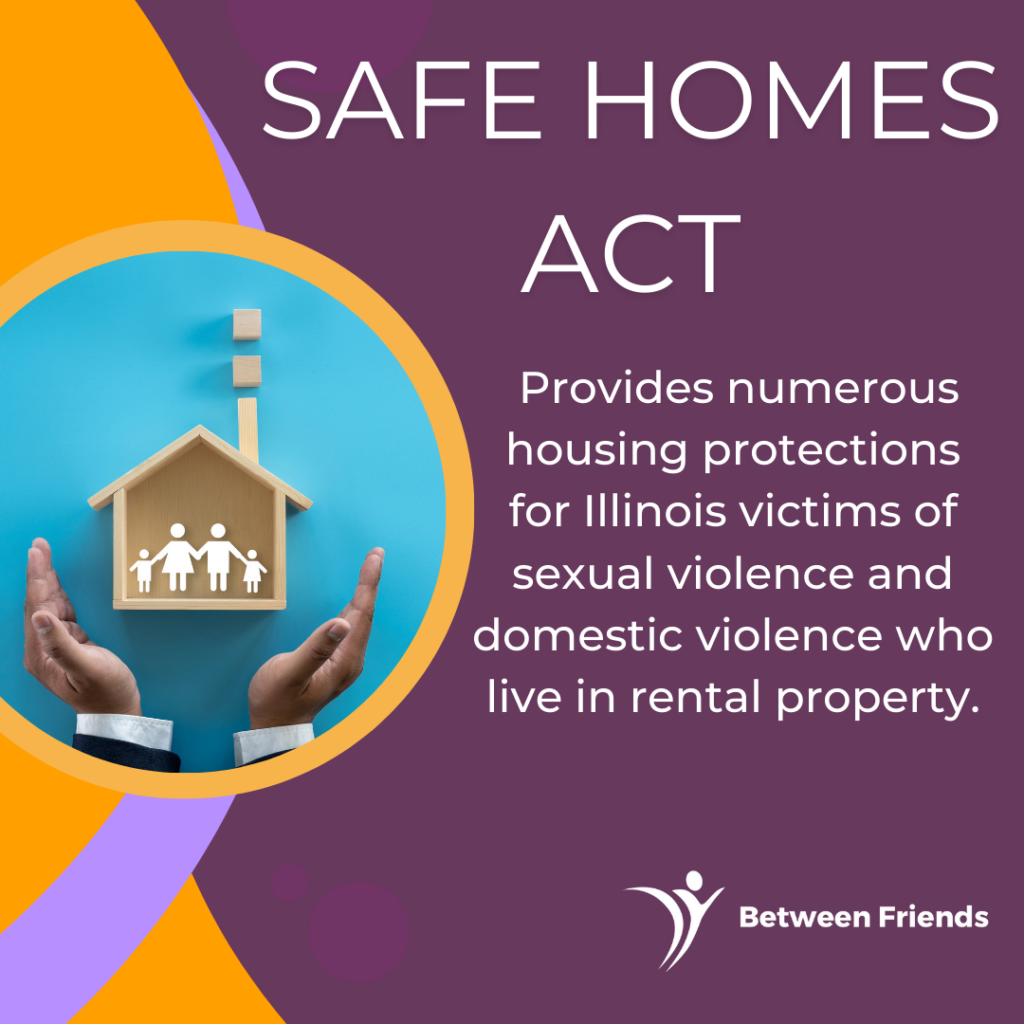Have you heard of the Safe Homes Act?
It is an Illinois Law that helps survivors stay safe where they live. If you or someone who you live with is experiencing domestic violence and you fear that you are not safe where you live, you can end your lease early or have your locks changed under the Safe Homes Act.
Who qualifies for the Safe Homes Act Provisions?
Those who live in private rental housing or subsidized housing (including with a Section 8 voucher) and who fear for their safety due to domestic or sexual violence. Public housing is not included under the act, but various municipalities may have other protections and support for residents.
How do you request a lock change?
If the abuser is not on the lease, you can request an emergency lock change by submitting to your landlord:
- a written request for a lock change and establishment that a credible and imminent threat of domestic or sexual violence exists on the premises
- evidence of the threat
- written permission from everyone on the lease
If the abuser is on the lease, you can request an emergency lock change by submitting:
- your written request for a lock change and establishment that a credible and imminent threat of domestic or sexual violence exists on the premises
- evidence of the threat
- a plenary order of protection that gives you exclusive possession of the property. If you need help getting a plenary order of protection, please contact Between Friends hotline (1-800-603-4357) so you can discuss this with a legal advocate.
- written permission from everyone on the lease who is not the abuser
In both cases the landlord is required to change the locks or allow you to do so within 48 hours. Within another 48 hours, you and your landlord need to make a good faith effort to provide the new keys to one another.
How do you end your lease early?
You must give your landlord written notice that you are ending your lease early due to a credible and imminent threat of domestic or sexual violence on the premise and explain the threat. You must provide this notice 3 days before or after leaving the premises and you must take your possessions and surrender your keys. In the case of sexual violence, you must give notice of leaving within 60 days or as soon as possible. It is recommended that you bring a witness with you when you give the landlord written notice or that you send it via certified mail. You cannot be held responsible for next month’s rent if you follow the guidelines highlighted above.
What constitutes a credible imminent threat?
Some examples include: An abuser comes to your work, and you fear they will come to your home next…You were sexually assaulted at your apartment and the police have not arrested the person…Your abusive ex-partner knows where you live.
What else does the act do?
It protects your privacy. Anything you share with your landlord to assert your rights under the act cannot be shared with anyone else. Your landlord will face fines if they violate this confidentiality.
If you are interested in reading The Safe Homes Act in its entirety, please click here.
If you are seeking support with asserting your Safe Homes Act rights, please contact Between Friends at 1-800-603-HELP (4357) and/or see this informational handout: Shriver Center Brochure.


